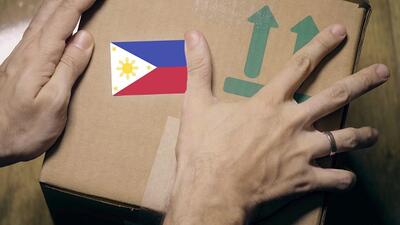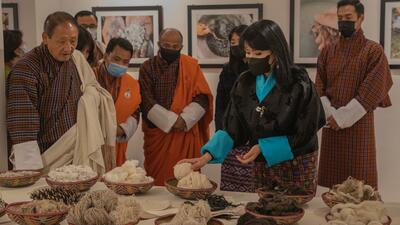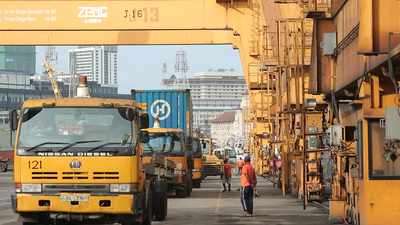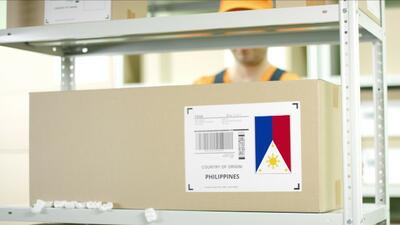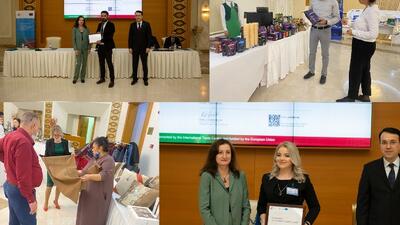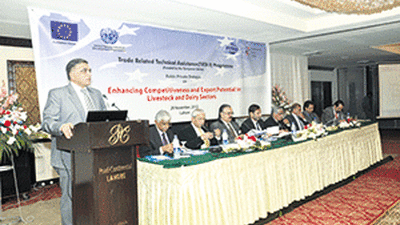Surveying the scope of non-tariff measures
Top-level results from initial surveys show that the types of NTMs experienced vary significantly depending on company size, sector affiliation and export or import partner countries. Drilling down, more granular data emerges, adding further understanding to NTMs in trade. Analysis of ITC NTM surveys that have been undertaken so far describes:
* Affected sectors - Agricultural exporters seem, on average, more affected by burdensome NTMs than exporters of manufactured products.
* A high incidence of procedural obstacles - Linked to the majority of NTMs that are reported as challenging are procedural obstacles, such as administrative delays or inappropriate facilities that render compliance with the underlying NTMs difficult. The NTMs in themselves are not problematic, but are rendered problematic by associated circumstances.
* Burdensome NTMs - Most burdensome NTMs reported by exporters are technical barriers to trade (TBTs) and sanitary and phytosanitary (SPS) measures. Specific measures reported include those of conformity assessment, such as certification, testing and technical inspection requirements. These burdensome NTMs are followed by NTMs covering rules of origin, pre-shipment inspections and charges and taxes.
* Partner countries - Countries exporting to developed countries report that nearly three quarters of NTMs applied by the partner countries concern SPS measures and/or TBTs. When partner countries are developing, this share drops to about half and other types of measures gain in importance and are perceived as comparatively more challenging.
* Sector importance - Exporters of agricultural products report more challenges related to SPS measures and TBTs than exporters of other products. However, shipment inspections, charges and taxes, and rules of origin are comparatively more challenging for exporters of non-agricultural products.
* Types of procedural obstacles - The most frequently mentioned procedural obstacle is delay in administrative procedures. This is followed by unusually high fees and charges, large numbers of documents, inconsistent or arbitrary behaviour of officials, and limited or inappropriate facilities, for example for testing.
As well as specifying facts around NTMs, the ITC survey results make clear that membership in regional trade agreements does not insulate countries from NTM-related problems. Even where provisions exist to remove tariffs and harmonize regulations, it is not a given that these provisions are fully implemented and all obstacles removed. For example, in the East African Community, ITC NTM surveys in Kenya and Rwanda reveal a significant share of burdensome NTMs reported by exporters that concern partner countries in the community. Further, many problems are homemade when an NTM is applied by a partner country. For example, in Burkina Faso it appears that national laboratories are not accredited to issue certifications required by the European Union (EU).
BURKINA FASO
A Burkinabe exporter of Shea butter to the United States said: 'We must obtain a phytosanitary certificate and an attestation of quality to export our products to the United States, but these certificates are too expensive.'
PARAGUAY
Several products exported to Argentina and Brazil must be registered and approved by government authorities in these countries. In the case of pharmaceuticals, the process can take six to twelve months. Approval for the export of insecticides to Brazil takes up to 12 months. The export of plastic products to Argentina endures delays of two months.
SRI LANKA
A company exporting coconuts described the large number of documents involved in exporting and problems at inspection points. X-ray machines are available, but are rarely used for cargo examination. Instead, physical examination is undertaken, which is time consuming and expensive. It can also damage perishable cargo that is carefully packed, but is subject to rain, water, dust and insects when opened for inspection.
SENEGAL
'We lose a lot of time obtaining the certificate of origin requested by importing countries. It takes around one week for the Ministry of Trade in Senegal to deliver the certificate,' reported a Senegalese exporter of fish to Côte d'Ivoire, the Congo and Cameroon.
RWANDA
A Rwandan pyrethrum exporter reported that it needed different certificates and tests for the European Union even though a United States laboratory had already tested the product. The test results were not recognized.
MOROCCO
'In order to obtain sanitary attestation we have to pass by several customs entities, which creates delays. Because of these administrative constraints we were not able to export last year,' reported a Moroccan exporter of seafood to Italy.
MALAWI
Almost a third of companies exporting agro-based products reported challenges with export licences. The licences are required for most agricultural products and applied irrespective of the destination country of the exports. They are issued by the Ministry of Industry and Trade and Ministry of Agriculture and Food Security, and are designed to guarantee food security as well as the health and safety of people, animals and plants. Exporters reported unpredictable delays, ranging from one week to two months, in obtaining licences from the respective ministries.
JAMAICA
'Our company manufactures and exports souvenir candles to the Netherlands Antilles, using the United States as a transit country. When candles are exported to the United States, each shipment is detained and inspected for contraband. On many occasions, at least 30% of the candles in the shipment are destroyed by the United States customs and the importing customer receives a shipment that is damaged by melted wax. Customers are not comfortable with the state of the shipment and purchase is reduced or stopped. Thus the company incurs losses.'
MAURITIUS
An exporter of books from Mauritius reported that the Seychelles imposes a quota on foreign exchange currency. Therefore the client has to come to Mauritius to make the payment in order to bypass this measure, which represents a major obstacle for potential buyers.
CAMBODIA
A company exporting aluminium wires to South Korea reported that the partner country required it to obtain a certificate of origin from the Ministry of Commerce in Cambodia. To get a certificate the company normally has to wait two to three weeks because there is not enough staff at the ministry to handle the job.
CÔTE D'IVOIRE
'We need to get a phytosanitary certificate in order to export our product. Unfortunately it takes about a week for our Ministry of Trade to deliver it, which is way too long,' reported an Ivoirian exporter of cashew nuts to India and China.
KAZAKHSTAN
In August 2011, an exporting company in South Kazakhstan sent copper alloys to Turkey by automobile transportation via Uzbekistan. Due to a new regulation in Uzbekistan the transit of non-ferrous metals was prohibited. A licence to transit non-ferrous metal needed to be obtained at the Ministry of Defense of Uzbekistan, but this was a long and difficult procedure. Information on the regulation was not adequately published and disseminated. The goods were blocked at the border. To resolve the situation, the company prepared the necessary documents to re-import the metals into Kazakhstan. In Kazakhstan, the product was loaded onto railroad wagons and sent to Turkey via Russia. The company suffered significant losses.
KENYA
A company exporting coffee and tea to the United Kingdom, Pakistan and the Islamic Republic of Iran reported: 'Before we are allowed to export, we must register our coffee with the Coffee Board of Kenya and our tea with the Kenya Tea Development Authority. This is a way of guarding the quality and value of the product in order to be able to compete with the same product from other countries in the international market. This registration must be made every time we export, making the exercise of exporting costly as we must pay for registration.'
MADAGASCAR
A Malagasy exporter of spices to the EU said: 'The regulations imposed by EU countries are too heavy for us. Product standards are too strict and we do not have enough time to comply.'
TUNISIA
'Canada requires pallets to be fumigated before export. The Canadian customs did not inform Tunisia about this requirement so our product was rejected and sent back. To avoid losing our client we were obliged to buy expensive installations to get our pallets fumigated,' reported a Tunisian exporter of olive oil to Canada.
GUINEA
A Guinean exporter of logs, tropical hardwoods and lumber to China, Japan and India reported: 'Since 30 December 2010, a decree signed by the government of Guinea prohibits the export of wood.'
TRINIDAD AND TOBAGO
A company exporting ice cream to Barbados reported: 'For certain countries we need an export sanitary certificate for dairy products. This is obtained from the Ministry of Food Production, Land and Marine Affairs at a cost of TT$ 20. It should take two days to get, but usually takes up to a week. When the documents are prepared they are usually full of errors. Every time we request corrections we are charged for a new certificate.'
EGYPT
Egyptian exports of impregnated birds' eggs are prohibited in markets including the United Arab Emirates, the Sudan, Somalia, Nigeria and Libya because of Avian Flu risk. Similarly, Egyptian exports of sugar confectionery products containing bovine gelatine are prohibited in markets including Morocco, Palestine, Syria and Jordan because of Swine Flu or Foot and Mouth Disease risk. Companies believe these restrictions are burdensome because they do not involve a specific time limit and remain even if the perceived problem is proved to be contained.
Sources for all above quotes: ITC survey on NTMs 2010-2012




